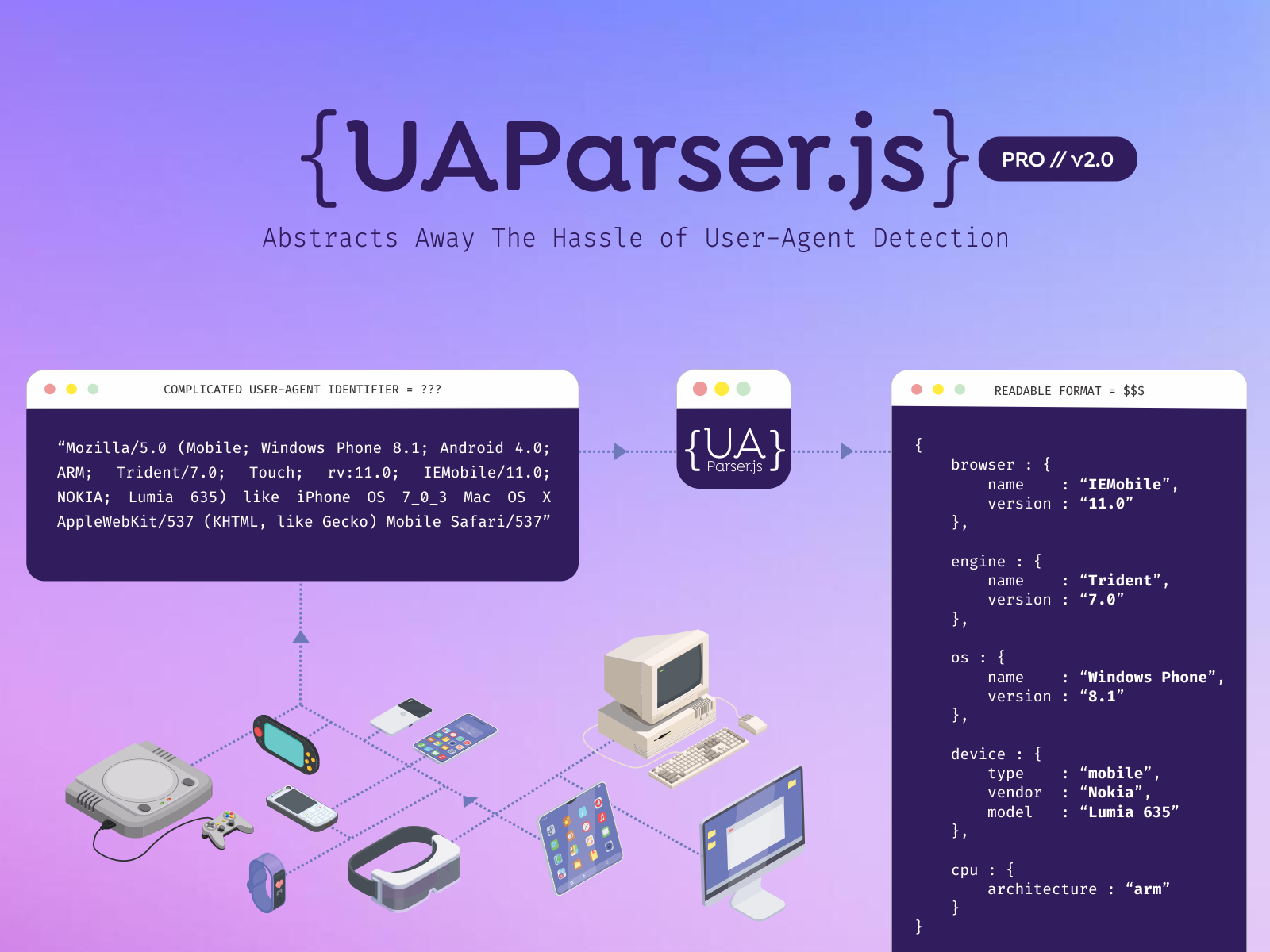Parsing Accuracy
- ua-parser-js:
ua-parser-js is known for its high accuracy and ability to parse a wide variety of User-Agent strings, providing detailed information about the browser, engine, OS, and device type. It is a robust choice for applications that require precise detection across different environments.
- react-device-detect:
react-device-detect excels in detecting device types (mobile, tablet, desktop) and specific browsers, making it highly effective for React applications. However, it may not provide in-depth details about the operating system or browser versions compared to more comprehensive libraries.
- useragent:
useragent offers extensive parsing capabilities with a focus on accuracy and detail. It can handle a wide range of User-Agent strings, including those from legacy browsers, and provides features like version comparison, making it one of the most comprehensive options available.
- express-useragent:
express-useragent provides a simple and effective way to parse User-Agent strings, focusing primarily on Express.js applications. While it offers decent accuracy, it may not cover all edge cases or provide as detailed information as some other libraries.
Integration Ease
- ua-parser-js:
ua-parser-js can be used in various environments (both client and server-side), but may require more initial setup compared to express-useragent or react-device-detect. Its versatility makes it suitable for diverse applications, but it might be slightly more complex to implement.
- react-device-detect:
react-device-detect is straightforward to integrate into React applications, allowing developers to easily conditionally render components based on device detection. It requires minimal setup and is user-friendly for those familiar with React.
- useragent:
useragent can be integrated into Node.js applications with ease, but it may require more configuration than express-useragent. Its extensive feature set can be beneficial for developers needing detailed parsing, but it may introduce additional complexity.
- express-useragent:
express-useragent is designed specifically for Express.js, making it easy to integrate into existing middleware. Its lightweight nature allows for quick setup and minimal configuration, ideal for developers already using Express.
Performance
- ua-parser-js:
ua-parser-js is designed for performance and can handle parsing efficiently. However, performance may be impacted if used excessively in high-frequency scenarios, such as on every render in a React component.
- react-device-detect:
react-device-detect is efficient for client-side detection, but performance may vary based on the number of device checks performed in a React application, especially if used extensively in rendering logic.
- useragent:
useragent is generally performant but can become slower with complex User-Agent strings or when handling a large volume of requests. Optimization strategies may be needed in high-load scenarios.
- express-useragent:
express-useragent is lightweight and optimized for performance within Express applications, ensuring minimal overhead when parsing User-Agent strings during request handling.
Community and Maintenance
- ua-parser-js:
ua-parser-js boasts a large community and is widely used, ensuring regular updates and support. Its popularity contributes to its reliability and ongoing maintenance.
- react-device-detect:
react-device-detect has a growing community and is actively maintained, making it a reliable choice for React developers looking for device detection solutions.
- useragent:
useragent has a stable community and is actively maintained, but its popularity is less than that of ua-parser-js. It remains a solid choice for developers needing detailed parsing capabilities.
- express-useragent:
express-useragent has a smaller community compared to more popular libraries, but it is actively maintained and sufficient for basic use cases within Express applications.
Documentation and Learning Curve
- ua-parser-js:
ua-parser-js provides comprehensive documentation, but the learning curve may be steeper for developers unfamiliar with User-Agent parsing concepts. However, once understood, it offers powerful capabilities.
- react-device-detect:
react-device-detect offers clear documentation and examples, making it beginner-friendly for React developers. The learning curve is low, especially for those with React experience.
- useragent:
useragent has detailed documentation, but the learning curve can be moderate due to its extensive feature set. Developers may need time to fully leverage its capabilities.
- express-useragent:
express-useragent has straightforward documentation, making it easy for developers familiar with Express.js to get started quickly. The learning curve is minimal for those already using Express.












